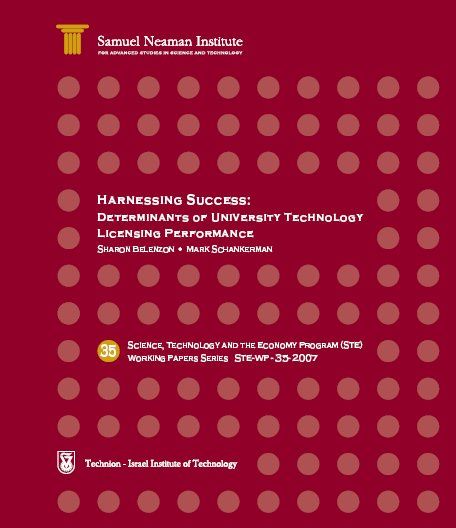We study the impact of incentive pay, local development objectives and government constraints on university licensing performance. We develop and test a simple contracting model technology licensing offices, using new survey information combined with panel data on 86 U.S. universities for the period 1995-99. We find that private universities are much more likely to adopt incentive pay than public ones, but ownership does not affect licensing performance conditional on the use of incentive pay. Adopting incentive pay is associated with about 30-40 percent more income per license. Universities with strong local development objectives generate about 30 percent less income per license, but are more likely to license to local (in-state) startup companies. Stronger government constraints are `costly’ in terms of the foregone license income and startup activity. These results are robust to controls for both observed and unobserved heterogeneity.
 / Publications / Harnessing Success: Determinants of University Technology Licensing Performance STE-WP-35
/ Publications / Harnessing Success: Determinants of University Technology Licensing Performance STE-WP-35











